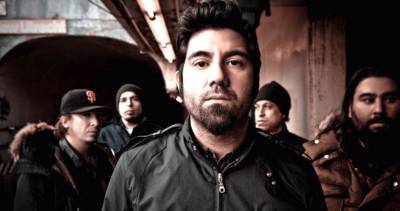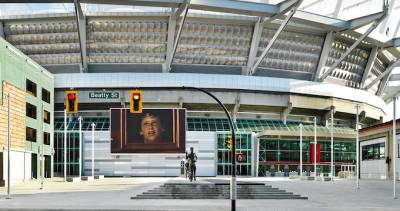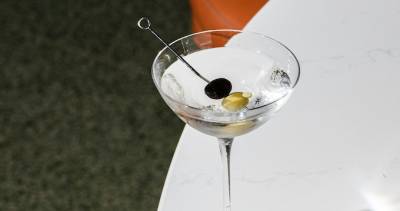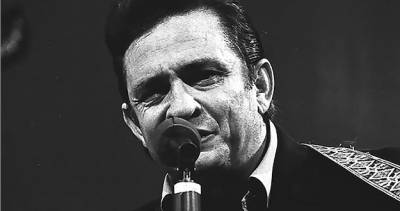Gwynne Dyer: Nigeria plunges into the unknown with Muhammadu Buhari
“I think, once a dictator, always a dictator,” said Sonnie Ekwowusi, a columnist for Nigeria’s This Day newspaper. “Many people are afraid that if [Muhammadu Buhari] wins, they will go to prison.”
Well, Buhari did win the presidential election, and there are many people in Nigeria who really should go to prison, mainly for corruption while in political office. Quite a lot of them worked with or for the outgoing president, Goodluck Jonathan, whose six years in office were marked by corruption that was impressive even by Nigeria’s demanding standards.
The problem is that the last time Muhammadu Buhari was president, in 1984-85, he was a general who seized the office in a military coup and jailed not only the elected president, Shehu Shagari, but some 500 politicians, officials, and businessmen. Many of them undoubtedly deserved it, but legal norms were not observed—and many other people whose only offense was criticising Buhari (like famed musician Fela Kuti) also ended up behind bars.
That President Buhari, now 30 years in the past, was single-minded in his anti-corruption drive, but also somewhat simple-minded. At the petty end of the spectrum, civil servants who short-changed the government by showing up late for work were forced to do frog hops. At the other end, he ordered the abduction of Shehu Shagari’s former adviser, Umaru Dikko, who was found drugged in a shipping crate at London’s Stansted airport.
He was the loosest of loose cannons, and his own military colleagues overthrew him after 20 months of arbitrary mayhem. But once democracy returned to Nigeria in 1999, Buhari started running for president as a born-again democrat. Now, on his fourth try, he has won, and by a safe margin: 15 million votes to Jonathan’s 12.5 million.
It’s a typically low Nigerian turnout—around a third of eligible voters—but it is nevertheless a famous victory. It’s the first time in half a century of Nigerian independence that one elected president has handed over power to another after losing an election. Full credit to Goodluck Jonathan for that: unusually for Nigeria, he didn’t dispute the outcome of the election. But there is still a large question mark over his successor.
Partly it is a question of whether the leopard can ever truly change his spots. Buhari claims to have changed a great deal in 30 years, and has apologised for his past behaviour in power, but the doubts inevitably linger. And partly it is a question of whether anybody can rule Nigeria successfully.
The country has three major problems that cannot be solved in the short term. The population, now 182 million, is growing at five million a year, and the birth rate had not dropped at all in the past 10 years. Nigeria will overtake the United States in population by 2050, but it will be packing them all those people into an area only slightly larger than Texas.
Secondly, Nigeria is more or less evenly split between Muslims, mostly in the northern half of the country, and Christians in the centre and south, but per capita income in the north is only half that in the south. The election of Buhari, a Muslim from the north, restores the traditional alternation of Christians and Muslims in the presidency, but that deal is unlikely to last much longer because the northern birth rate is far higher than in the south.
Thirdly, the poverty and over-population of the north has been an excellent incubator for extremism, and an Islamist cult called Boko Haram has now seized control of much of the northeast. At least 13,000 people have been killed in the ongoing violence since 2009, and a million and a half have been displaced. Boko Haram now swears allegiance to the “caliph” of the “Islamic State” (ISIS) in the Middle East, and competes with it in cruelty.
Oh, and the price of oil, the main source of government revenue, is down by half. Muhammadu Buhari may be a reformed character, and he will certainly do much more than Goodluck Jonathan on the anti-corruption front. (He could hardly do less.) But all these other problems will continue to undermine Nigeria’s stability and prosperity even if he manages to eliminate the worst of the corruption.
On the other hand, it could be a lot worse. As Wole Soyinka, the celebrated author who has become Nigeria’s public conscience, told the Guardian on Tuesday, “Unambiguously it is good that the Jonathan government has been removed. It was impossible. Even a plunge into the unknown was preferable to what was going on. We were drowning.”















Comments
4 Comments
Hab In China
Apr 2, 2015 at 7:09am
I hear he is also pledging or likely to try and stamp out Boko Haram. Is this likely, and was it a factor in getting him elected?
IChandler
Apr 2, 2015 at 7:16am
DYER: “I think, once a dictator, always a dictator,”
FDR: "He’s a son-of-a-bitch, but he’s our son-of-a-bitch"
We have schools son-of-a-bitch schools - See the School of the Americas etc. Nigerian President-elect underwent training at a US Army War College & Mons Officer School in England.
DYER: "civil servants late for work were forced to do frog hops."
Some harmless fun for the tardy? Our son-of-a-bitch Portashanko's Ukraine school children
have fun Jumping while shouting: "If you're not jumping, you're a Moskal!" They also have fun shouting "One language, One nation,One fatherland." and "Russian should be hung!"
https://www.youtube.com/watch?v=5VRli1Ybah4
DYER: "jailed some 500 politicians, officials, and businessmen. "
Some harmless fun for the old regime? Yu Shan writes:
"Ukrainian student activists storming university classrooms in mid-lecture and ordering everyone to stand up and sing the Ukrainian national anthem, then forcing the professor to apologize for the lecture not being adequately patriotic. There were also ghastly spectacles of “Enemies of the People” (guilty only of having served under the overthrown president Yanukovich) being paraded around in trash bins. "
McRetso
Apr 2, 2015 at 4:34pm
Oh Chandler, you ought to hire an editor. The quote "once a dictator, always a dictator" is attributed to Sonnie Ekwowusi, a Nigerian columnist. Yet you've attributed it to Dyer. Is reading that hard for you?
You certainly seem to have difficulty staying on topic; the connection between Ukraine and Nigeria is incredibly dubious. Speaking of dubious, it's amazing that you can be surprised that Ukrainians are upset at Russia when Russian-backed militants have been fighting them for over a year.
Next criticism: Bad sourcing format. Your most outlandish claim doesn't have a source that can be checked. I don't know who "Yu Shan" is, but he or she is talking crap; plenty of members of the current Ukrainian government served in parliament during Yanukovych's time in power. Many even served in his party. When Yanukovych fled to Russia, they were the ones that voted to form the new government.
Seriously, you need someone to check these things for you. I'll do it if you like. My rates are reasonable.
NORMANDO
Apr 4, 2015 at 9:11am
Mostly I'm glad the hat is gone. Never could figure the hat. You'd think a guy who was wallowing in graft could afford a better hat. Or at least worn one with a little more panache. It must be an African thing.